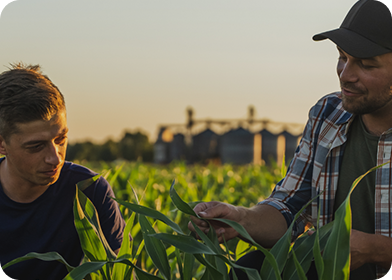
We strive to protect and respect the livelihoods of all workers in our supply chain.
That means paying a fair price to suppliers, supporting local communities, and ensuring good and safe working conditions for everyone in our business and supply chain.
Targets
- 100% of Ocado Own Brand high-risk Tier 1 suppliers to complete a two-pillar SMETA Audit on a yearly basis.
- Mapping 100% of our high-risk products to source level so we can address any human rights or modern slavery risks.
Our approach
We are fully committed to promoting a food system that protects human rights and treats all people in our supply chains ethically, and to uphold the United Nations Guiding Principles on Business and Human Rights.
Human rights and modern slavery risks are part of our corporate risk matrix and monitored by our Board’s Audit Committee. In 2023, we carried out a comprehensive review of our Human Rights & Modern Slavery approach which led to a new strategic plan. We also delivered training to all colleagues and a refresher will be mandated annually.
Policy and codes of practice
Our Ocado Own Brand suppliers are required to adhere to our policies and codes of practice, including Grocery/General Merchandise Supplier Manual and Ethical Sourcing Code of Practice. These suppliers must be active members of the Supplier Ethical Data Exchange (SEDEX) and complete a Sedex SelfAssessment Questionnaire on an annual basis.
Managing our supply chain risks
We use SEDEX’s Radar to risk assess our suppliers in the four SEDEX Members Ethical Trade Audit (SMETA) pillars and 14 risk topics. This provides an inherent and combined risk rating for suppliers of Ocado Own Brand products based on factors such as country, product area, sector profile and site function. We consider risks beyond our Tier 1 (Own Brand supplying sites), and engage with those active in high-risk supply chains. This means they pack commodities (coffee, tea), produce, seafood and/or have supply chains extending to countries with known Human Rights risks.
Third party storage and distribution sites are utilised for temporary product storage and consolidation. We recognise the risk associated with these operations and in 2023 we expanded our programme to these sites.
Working through partnerships
Stronger Together
We continue to be a project sponsor of Stronger Together, a multistakeholder business-led initiative aiming to reduce modern slavery and hidden third-party exploitation of workers.

Food Network for Ethical Trade (FNET)
We are members of the Food Network for Ethical Trade (FNET), a supplier-led initiative aiming to use the collective leverage of suppliers and retailers to bring about positive change in working conditions in global food supply chains.

Unseen
In 2022, Ocado became a partner of Unseen, a UK charity working with individuals, businesses, governments, communities, and other charities to help eradicate modern slavery. They provide the UK Modern Slavery and Exploitation Helpline which any supplier or worker can use, as well as safe houses and support for survivors of trafficking and modern slavery.

Seafood Ethics Action Alliance
We recognise that more can be done to ensure the human rights of fishermen are upheld. Since 2022, we’ve been members of the Seafood Ethics Action (SEA) Alliance, a pre-competitive collaboration of retailers and seafood businesses aiming to strengthen human rights due diligence carried out in global seafood supply chains.

In 2024, we became a funding member of the Seasonal Workers Scheme Taskforce, whose mission is to “work collaboratively to develop and implement tangible actions to help safeguard and ensure access to workers’ rights in the UK Seasonal Worker Scheme (SWS) and wider UK horticulture.”
100% of Ocado Own Brand Tier 1 suppliers are registered on Sedex.
We engage with 9 Sedex high-risk suppliers and 43 suppliers in high-risk supply chains.



